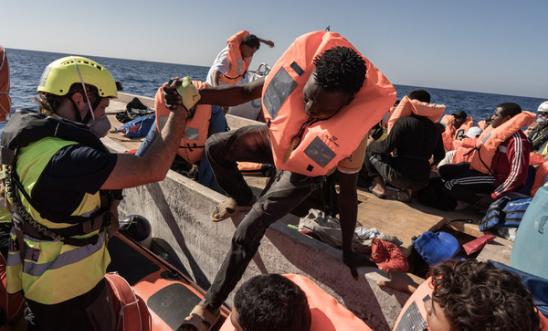
Press releases
EU/Tunisia: Migration agreement makes EU 'complicit' in abuses against refugees

Tunisian authorities given permission to prevent people reaching Europe
Agreement lacks crucial safeguards on human rights
‘EU leaders are once again embarking on failed policies that are based on callous disregard for basic human rights standards’ – Eve Geddie
In response to the EU giving Tunisia financial and technical support to deter Europe-bound migration, Eve Geddie, Amnesty International’s European Institutions Advocacy Director, said:
“Despite mounting evidence of serious human rights abuses, this ill-judged agreement will result in a dangerous expansion of already failed migration policies.
“The escalating violence and abuses against sub-Saharan African migrants by Tunisian authorities shows no lessons have been learned from previous similar agreements - this makes the European Union complicit in the suffering that will inevitably result from this decision.
“At the same time as Tunisia and the EU were preparing to sign this agreement, Tunisian authorities left hundreds of people including children stranded at Tunisia’s desert borders, initially without water, food or shelter.
“Rather than ensuring safe and legal routes for people trying to cross borders safely, EU leaders are once again embarking on failed policies that are based on callous disregard for basic human rights standards.”
Agreement to push back refugees
The Memorandum of Understanding was signed by European Commissioner for Neighbourhood and Enlargement Olivér Várhelyi and Tunisia’s Secretary of State of the Minister of Foreign Affairs, Migration and Tunisians Abroad, Mounir Ben Rjiba, following a meeting in Tunisia between European Commission President Ursula von der Leyen, Dutch Prime Minister Mark Rutte, Italian Prime Minister Giorgia Meloni and Tunisian President Kais Saied on Sunday (16 July).
The agreement provides financial support to Tunisia and aims to prevent people from reaching Europe, increase returns of Tunisians without permission to remain in Europe and facilitate returns from Tunisia to third countries of people of other nationalities.
The agreement was negotiated without input from civil society and lacks crucial safeguards on human rights. The press conference held by Tunisian and EU leaders following the agreement did not include journalists.
Political witch-hunt in Tunisia
Tunisia’s President, Kais Saied has concentrated near-total power to rule since suspending the country’s former parliament in 2021. Authorities have investigated and, in some cases, arrested at least 72 opposition figures and other perceived critics of the president accused of various offenses.